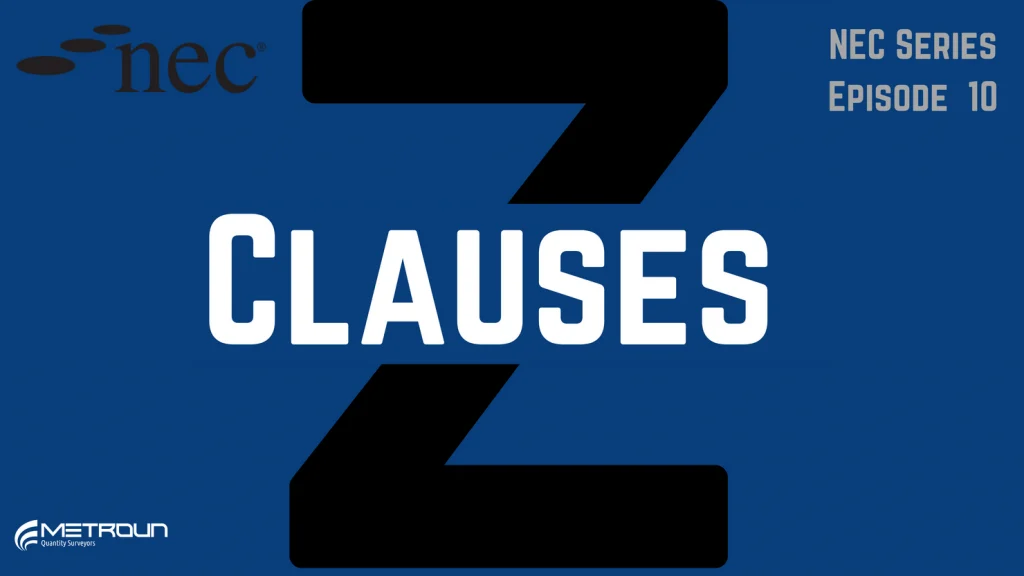The clauses within the NEC Engineering and Construction contract can be split into the following categories: The Core Clauses – which make up the main body of the contract – a chosen Main Option Clause which determines how work is paid, and a selection of optional bolt-on clauses known as Secondary Option Clauses X Y or Z.
This blog forms part of a trilogy which will explore the three types of Secondary Option Clauses. In this particular video we’ll be looking at the NEC Z clauses. What they are and whatthey are used for.

Please click here for our selection of NEC tailored excel templates for download.
Although it is widely recommended to keep the NEC contract as close to its standard text as possible, you’ll often find this won’t be the case. Z clauses are used to amend the standard NEC contract clauses by means of adding new clauses or amending the wording of existing clauses. They are incorporated through the contract data.
But why would someone want to alter the text of such a widely popular contract? Some believe the NEC provisions are not as extensive as they need to be. The following are common uses for Z clause amendments:
· General obligations for the contractor to comply with applicable statuses, code of practice, regulations and so on
· Adding the requirement for collateral warranties
· Accommodate special needs such as those peculiar to the country in which the work is to be done
· Unnecessary clauses – like compliance with the law
· Provisions which should have been in the Works Information/ Scope
· Repetition of existing contract clauses
· Or, Attempting to change the balance of risk
Mott Macdonald research found that only 8% of Z clauses invoked are actually valid – The rest were unnecessary or attempts to change the contract risk profile.
It is often said the Z clause should only be used if it is absolutely necessary to facilitate specific contract requirements and it seems the data supports this claim. Otherwise this could lead to confusion or ambiguities in the contract. If there are Z clauses within a contract you don’t understand, it is recommended you seek legal advice.
Why not watch our video on Z Clauses here:










